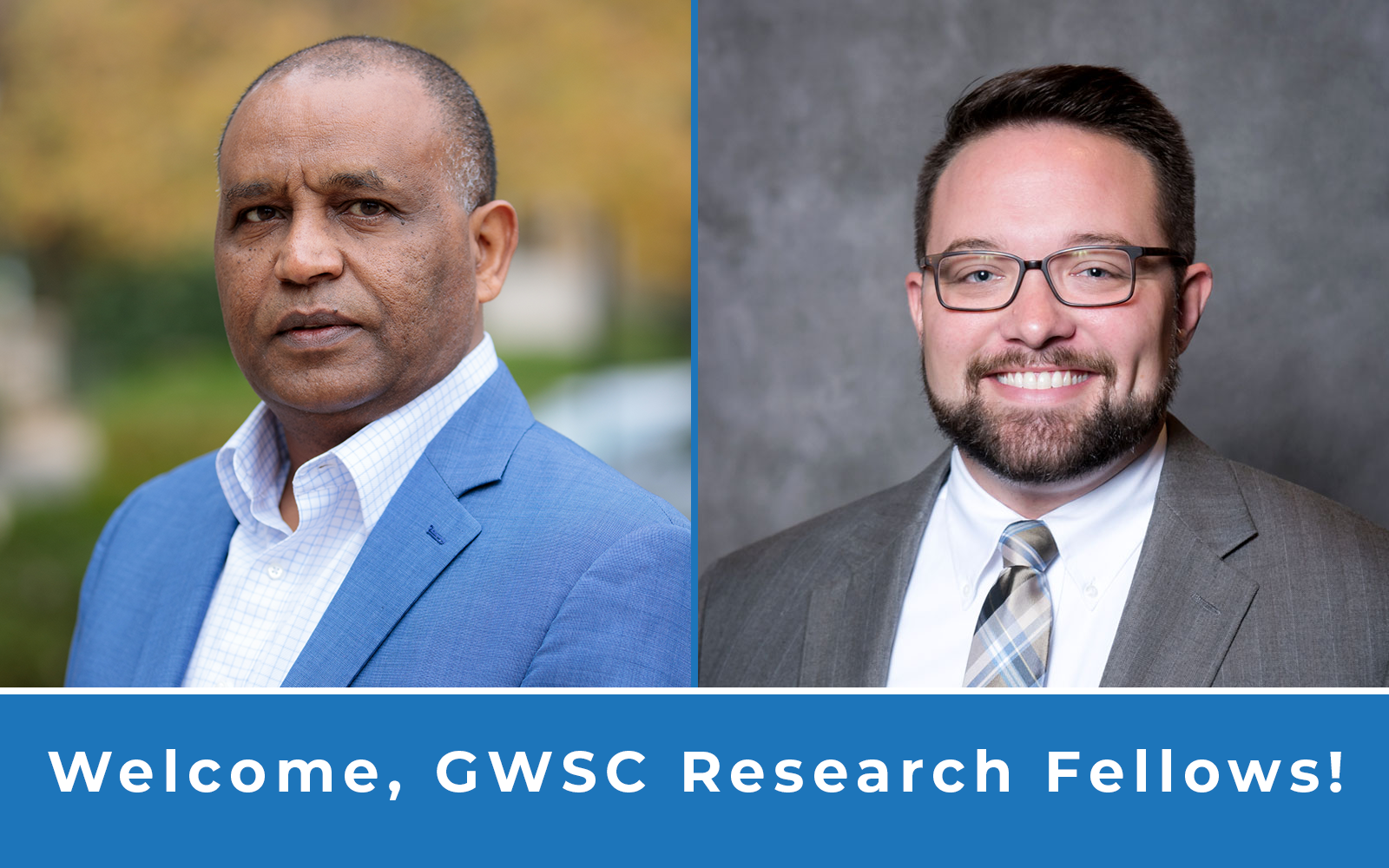The Global Water Security Center is pleased to welcome Drs. Mesfin Mekonnen and Matthew S. VanDyke as its inaugural research fellows.
Dr. Mesfin Mekonnen
Dr. Mesfin Mekonnen joined the Department of Civil, Construction, and Environmental Engineering at The University of Alabama as an Assistant Professor in August 2020, where he leads the Water Security Research group. He is affiliated with the Center for Complex Hydrosystems Research, the Center for Water Quality, and the Center for Sustainable Infrastructure. Before joining the University of Alabama, Mekonnen was a research assistant professor at the Daugherty Water for Food Global Institute, University of Nebraska, from 2016 to 2020, and a postdoctoral researcher at the University of Twente in the Netherlands from 2011 to 2016. He holds a Ph.D. in Water Engineering and Management from the University of Twente, the Netherlands.
His research interest is understanding the relationship between human and natural systems to ensure the sustainability of freshwater resources. His research group is focused on exploring the following scientific questions: What are the spatial and temporal patterns of the global water footprint, and what are the main drivers behind these trends? How do global water usage practices impact the water cycle, and what are their implications for human and ecosystem water security? How can we sustainably meet current and future global water demands while minimizing negative impacts on the environment?
Dr. Mekonnen has published over 70 highly cited peer-reviewed articles in premier journals, including Science, Nature, and PNAS. He has received the Clarivate Highly Cited Researcher Award during the 2021 and 2022 award cycles (this award is given each year to approximately 1% of the most-cited researchers within their respective fields, underscoring the excellence and impact of his technical contributions. He also serves on the editorial board of Frontiers in Sustainable Food Systems journal.
Selected works:
- The Water Footprint of Humanity
- Four billion people facing severe water scarcity
- Indicator metrics and temporal aggregations introduce ambiguities in water scarcity estimates
Dr. Matthew S. VanDyke
Matthew S. VanDyke (Ph.D., Texas Tech University) is an associate professor in the Department of Advertising and Public Relations, faculty lead of the Alabama Science Communication Initiative, and faculty fellow with the Alabama Water Institute at The University of Alabama. His research investigates processes, problems, and risks associated with the public communication of environmental and science information, often in water-related contexts.
VanDyke’s published work appears in major outlets, such as PLoS ONE, Journal of Communication Management, Public Relations Review, Environmental Communication, Science Communication, Risk Analysis, Journal of Risk Research, and Journal of Extreme Events. His research has been funded by the National Science Foundation, National Oceanic and Atmospheric Administration, Arthur W. Page Center for Integrity in Public Communication, Public Relations Society of America, and Mississippi-Alabama Sea Grant Consortium. He is currently Head of the Communicating Science, Health, Environment and Risk Division of the Association for Education in Journalism and Mass Communication.
He served as a member of the steering committee for the Science Public Engagement Partnership (SciPEP) organized by The Kavli Foundation and the U.S. Department of Energy’s Office of Science. He also chaired the National Academies of Sciences, Engineering, and Medicine “In Times of Crisis: Stories from the Gulf of Mexico” competition from 2021 to 2022. VanDyke has received honors and awards for his published research and work presented at conferences.
Selected works:
- How risk decision-makers interpret and use flood forecast information: Assessing the Mississippi River Outlook email product.
- Using continuous response and self-report measures to understand spokesperson evaluation processes during water crises.
- Using the CAUSE model to understand public communication about water risks: Perspectives from Texas groundwater district officials on drought and availability.

